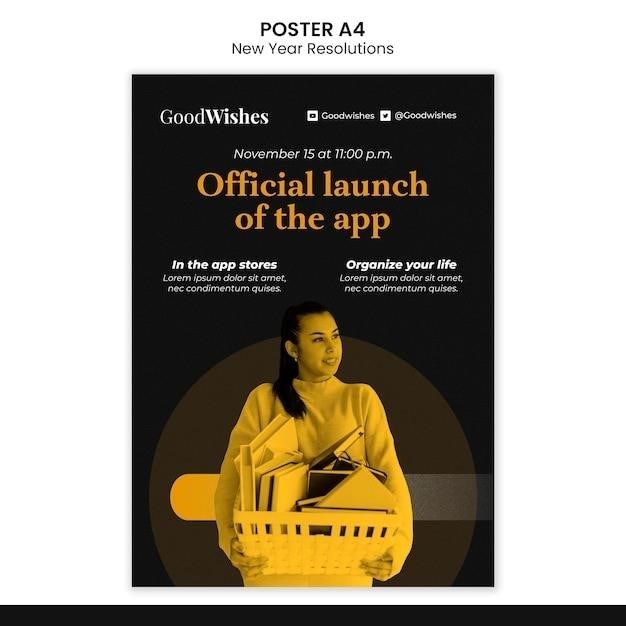retail award pay guide 2024
Retail Award Pay Guide 2024⁚ A Comprehensive Overview
This guide provides a complete summary of the 2024 General Retail Industry Award (MA000004), including updated pay rates effective July 1st, 2024. It covers minimum wages, penalty rates, allowances, leave entitlements, and resolving workplace pay disputes. Access essential resources and calculators for accurate pay calculations.
Key Pay Rate Changes Effective July 1, 2024
Significant changes to retail award pay rates commenced on July 1st, 2024. The Fair Work Commission’s annual wage review resulted in a minimum increase of 3.75% across all modern award rates, impacting all employees covered by the General Retail Industry Award MA000004. This translates to a substantial pay rise for retail workers at all levels, from entry-level positions to senior roles. The updated pay rates are readily available through various online resources, including the Fair Work Ombudsman website and dedicated pay rate viewers provided by retail industry associations. These resources ensure employers and employees can easily access the correct and up-to-date figures to guarantee accurate payroll processing and fair compensation. Employers are legally obligated to pay at least the award rates, and failure to do so can lead to penalties. The exact increase will vary depending on the employee’s classification and hours worked. It’s crucial to consult the official award document and online tools to determine the precise adjusted pay rate for each individual.
Understanding the General Retail Industry Award MA000004
The General Retail Industry Award 2020 (MA000004) is a legally binding document that sets minimum employment standards for retail workers across Australia. It’s a comprehensive document covering various aspects of employment, including minimum wages, overtime rates, penalty rates for weekend and public holiday work, leave entitlements (annual leave, sick leave, personal/carers leave), and allowances for specific tasks or circumstances. The award aims to ensure fair and equitable treatment for all retail employees, regardless of their specific role or location within the industry. It’s regularly reviewed and updated by the Fair Work Commission to reflect changes in the economy and employment landscape. Understanding this award is crucial for both employers and employees to ensure compliance with the law and to prevent disputes; The award’s details are publicly accessible through the Fair Work Ombudsman’s website and other official channels. Employers must adhere to the award’s provisions, while employees should be aware of their rights and entitlements under the award to ensure they are being paid and treated fairly.
Minimum Wage Rates for Retail Workers in 2024
Minimum wage rates for retail workers in 2024 are determined by the General Retail Industry Award 2020 (MA000004) and are subject to annual reviews by the Fair Work Commission. As of July 1st, 2024, a significant increase of at least 3.75% was implemented across all award rates. The exact minimum wage varies depending on the employee’s classification and level within the retail industry. For instance, entry-level employees will have a different minimum wage than those in supervisory or managerial positions. These rates are not just hourly; they also incorporate considerations for penalty rates for work outside standard hours (weekends, public holidays, nights, and early mornings). The award also specifies minimum pay for casual employees, which includes a loading to compensate for the lack of benefits like annual leave and sick leave. It’s crucial to consult the official award document or the Fair Work Ombudsman’s website for the most up-to-date and precise minimum wage figures for various employee classifications within the retail sector in 2024. Failure to comply with these minimum wage requirements can result in penalties for employers.
Award Pay Rates Across Different Employee Levels
The General Retail Industry Award 2020 (MA000004) structures pay rates according to employee classifications and levels of responsibility. These levels range from entry-level positions to more senior roles, reflecting the complexity and experience required. Each level has a corresponding minimum hourly pay rate, which increased significantly as of July 1st, 2024, following the annual wage review. For example, a Level 1 employee (typically an entry-level position) will have a lower minimum wage compared to a Level 4 employee (often a supervisor or team leader). The higher the level, the greater the responsibilities and skills involved, justifying the increased pay. The exact pay rates for each level are specified in the award itself and are accessible via the Fair Work Ombudsman’s website. It’s important to note that these are minimum rates; employers may choose to offer higher pay based on individual performance, experience, or collective bargaining agreements. Understanding the specific level of an employee is critical for ensuring accurate and compliant payroll practices. Employers should consult the award document or seek expert advice to correctly classify their employees and ensure they are paid the appropriate minimum wage for their level.
Penalty Rates and Allowances⁚ A Detailed Breakdown
The General Retail Industry Award 2020 incorporates various penalty rates to compensate employees for working during less desirable times, such as weekends, public holidays, evenings, and early mornings. These penalty rates are typically expressed as a percentage increase over the standard hourly rate, ensuring employees receive extra pay for the inconvenience and disruption to their normal routines. For example, working on a Sunday might attract a significant penalty rate increase. The award also outlines specific allowances, providing additional payments for particular circumstances or tasks. These allowances can cover things like uniform provision, if the employer requires employees to wear a specific uniform. Other allowances might compensate for specific tasks or responsibilities beyond the ordinary scope of work, such as handling hazardous materials. The precise penalty rates and allowances are detailed in the award and can vary depending on factors like the day of the week, time of day, and the specific tasks involved. It’s crucial for employers to carefully review the award to understand the applicable rates and allowances for their employees to ensure compliance and avoid potential disputes. Understanding these intricacies is vital for ensuring fair and legal compensation for retail workers.
Overtime Pay Calculations and Entitlements
The General Retail Industry Award 2020 mandates specific calculations for overtime pay, ensuring fair compensation for employees working beyond their ordinary hours. Overtime is generally calculated at a premium rate, usually time and a half or double time, depending on the day and the number of hours worked. For instance, overtime on a weekend or public holiday will typically attract a higher rate than overtime during the standard working week. The award clearly defines ordinary hours, which are the standard hours stipulated in the employee’s contract or roster. Any hours worked beyond these ordinary hours are considered overtime and are subject to the relevant premium rates. Accurate record-keeping is crucial for both employers and employees to track overtime hours and ensure correct payment. Employers must maintain detailed records of employee working hours, including start and finish times, breaks, and any overtime worked. Employees are also encouraged to keep their own records to verify their pay. Disputes regarding overtime calculations are common, so it’s crucial to consult the award for precise calculations and to document all hours worked carefully. The Fair Work Ombudsman’s website provides helpful resources and tools for both employers and employees to understand their rights and responsibilities concerning overtime pay.
Leave Entitlements Under the Retail Award
The General Retail Industry Award 2020 outlines comprehensive leave entitlements for retail employees, ensuring they receive paid time off for various reasons. These entitlements include annual leave, personal/carer’s leave, compassionate leave, and community service leave. Annual leave, accrued over time, allows employees paid time off for holidays and rest. The amount of annual leave is usually calculated based on the number of hours worked per week. Personal/carer’s leave provides paid time off for personal illness or to care for a family member. This leave is usually provided for a set number of days per year. Compassionate leave offers paid time off to attend to family emergencies or bereavements. The amount of compassionate leave available will vary depending on the circumstances and the relationship to the deceased. Community service leave provides paid time off for jury duty or other community service obligations. Employees must notify their employer in advance of their leave, providing relevant documentation where applicable. The Fair Work Ombudsman’s website is an excellent resource for detailed information regarding leave entitlements under the retail award. Understanding these entitlements is crucial for both employees and employers to maintain a fair and compliant workplace. Employees should familiarize themselves with their rights and employers should ensure they adhere to the award’s provisions. Any disputes regarding leave entitlements should be addressed promptly and fairly, with reference to the award provisions.
Navigating Enterprise Bargaining Agreements (EBAs)
Many retail workers are covered by Enterprise Bargaining Agreements (EBAs) rather than solely relying on the Retail Award. EBAs are collective agreements negotiated between employers and employees (or their representatives) that set out terms and conditions of employment specific to a particular workplace or enterprise. These agreements often provide improved pay and conditions compared to the minimum standards set by the award. Navigating EBAs requires understanding their content and how they interact with the award. An EBA will usually outline pay rates, allowances, penalty rates, overtime provisions, and leave entitlements. These may be more favorable than those specified in the award, but they cannot offer less. It’s crucial to access and thoroughly review the relevant EBA for your workplace to understand your specific entitlements. Employees should be provided with a copy of their workplace’s EBA, and employers are legally obligated to do so. If you can’t find your EBA, contact your employer or union representative for assistance. The Fair Work Commission website offers resources to help understand EBAs and their legal implications. Disputes regarding EBA interpretation or compliance should be directed to the Fair Work Commission. Understanding your EBA is vital for ensuring you receive the correct pay and conditions. Always compare your payslip against the terms detailed in the agreement to identify any discrepancies.
Accessing Personalized Pay and Conditions Information

Accessing your personalized pay and conditions information is crucial for ensuring you receive the correct entitlements under the Retail Award 2024. Several resources are available to help you understand your specific pay and conditions. Your employer is legally obligated to provide you with a payslip that clearly details your earnings, deductions, and hours worked. This payslip should align with the provisions of the Retail Award or your Enterprise Bargaining Agreement (EBA); If discrepancies exist, raise them promptly with your employer. Many unions, such as the SDA (Shop, Distributive and Allied Employees Association), offer members personalized support in checking their pay rates and conditions. Their experts can help you interpret your EBA or the Retail Award and verify that your pay reflects your entitlements. Online resources, including pay calculators and the Fair Work Ombudsman website, can assist you in calculating your expected pay based on your hours worked, classification, and any applicable penalty rates or allowances. These tools can help you identify any potential underpayments. Remember to keep records of your timesheets, payslips, and any relevant correspondence with your employer. These records will be invaluable if you need to resolve a pay dispute. By utilizing these resources and proactively checking your pay, you can ensure you receive the compensation you deserve under the Retail Award 2024.
Resolving Workplace Pay Disputes and Issues
Disputes regarding pay and entitlements under the Retail Award 2024 are unfortunately common. If you believe you’ve been underpaid or have other concerns about your pay, there are several steps you can take to resolve the issue. First, attempt to resolve the matter directly with your employer. Clearly explain your concerns, providing supporting documentation such as payslips and timesheets. Maintain a professional and respectful approach, aiming for a mutually agreeable solution. If direct communication with your employer fails to resolve the issue, consider seeking assistance from your union. Unions like the SDA offer support and advice to members facing pay disputes and can help negotiate a fair settlement. If union assistance proves insufficient, you can seek help from the Fair Work Ombudsman. The Fair Work Ombudsman is an independent government agency that provides free advice and support to employees and employers on workplace rights and obligations. They can investigate your complaint and work towards a resolution. If the dispute remains unresolved, you can lodge an application with the Fair Work Commission (FWC). The FWC is Australia’s workplace tribunal and can hear and determine disputes, including those involving underpayment or breaches of the Retail Award. It’s important to keep thorough records of all communication and documentation related to the dispute to aid in the resolution process. Remember, seeking assistance early is often the most effective way to resolve workplace pay disputes.
The Role of the Fair Work Commission (FWC)
The Fair Work Commission (FWC) plays a crucial role in overseeing and enforcing the Retail Award 2024 and resolving workplace disputes. As Australia’s national workplace relations tribunal, the FWC is responsible for creating and amending modern awards, including the General Retail Industry Award. They review and approve enterprise bargaining agreements (EBAs) which may apply to specific retail workplaces, ensuring they meet the minimum standards set by the award. The FWC also handles disputes arising from the award’s interpretation and application. Employees or employers who disagree on matters such as pay rates, penalty rates, leave entitlements, or other award-related issues can apply to the FWC for assistance; The FWC provides a formal process for resolving these disputes, potentially including conciliation, mediation, or arbitration. Their decisions are legally binding, ensuring compliance with the award’s provisions. The FWC’s website offers comprehensive information on lodging an application, the procedures involved, and the types of disputes they handle. They aim to provide a fair and efficient system for resolving workplace issues, upholding the rights and obligations of both employers and employees under the Retail Award 2024. The FWC’s involvement is essential in ensuring a consistent and equitable application of the award across the retail industry.

Utilizing Online Resources and Pay Calculators
Navigating the complexities of the Retail Award 2024 is significantly simplified through readily available online resources and pay calculators. The Fair Work Ombudsman website provides a wealth of information, including the full text of the award, frequently asked questions, and guidance on interpreting its provisions. This site is a crucial starting point for both employers and employees seeking clarity on pay rates, penalty rates, leave entitlements, and other key aspects of the award. Many websites offer user-friendly pay calculators specifically designed for the Retail Award. These tools streamline the process of calculating wages, factoring in various elements such as ordinary hours, overtime, penalty rates, and allowances. By inputting relevant employee data, employers can quickly and accurately determine the correct pay. These calculators reduce the risk of errors and ensure compliance with the award’s stipulations. While these tools provide valuable assistance, it’s important to remember they are not a substitute for professional legal advice if complex or unique situations arise. For intricate scenarios, consulting with a legal professional familiar with workplace law and the Retail Award is advisable. The combination of readily accessible online resources and sophisticated pay calculators equips both employers and employees with the tools to navigate the complexities of the Retail Award 2024 effectively and accurately.
Staying Updated with Retail Award Changes and Amendments
The Australian industrial relations landscape is dynamic, with regular changes and amendments to awards like the General Retail Industry Award 2020. Staying informed about these updates is crucial for both employers and employees to ensure compliance and accurate pay. The Fair Work Commission (FWC) is the primary source for official notifications of changes to the award. Regularly checking the FWC website is essential, as announcements of variations, new interpretations, and any significant alterations are published there. Subscribing to FWC email alerts or RSS feeds ensures timely notification of any updates directly to your inbox. Professional bodies representing retail employers and employees often issue bulletins and newsletters summarizing changes to the award, offering insights and practical guidance. These resources can help simplify complex legal language and provide context to the changes. Staying abreast of industry news and developments through reputable sources, such as trade publications and legal news websites, is also helpful. These sources often provide commentary and analysis of the impacts of award changes on the retail sector. Regularly reviewing internal payroll processes and ensuring alignment with the latest award provisions is a critical responsibility for employers. This includes updating pay calculation methods, training staff on the new rules, and revising internal documentation to reflect the amendments. By adopting a proactive approach to monitoring changes and utilizing the available resources, both employers and employees can navigate the evolving regulatory environment and maintain compliance with the Retail Award.
